A Lot of Gecs: 100 Gecs Takes On the Aragon
Arts Reporter Sofia Hrycyszyn reviews 100 gecs’ sold-out show at the Aragon Ballroom on April 20.
Dylan Brady of 100 gecs sports his classic wizard hat and cloak, with his musical-partner Laura Les projected behind him.
June 6, 2023
From the photo pit, I looked over my shoulder at Aragon’s crowd, chattering, smoking, and impatiently waiting for 100 gecs to step on stage. A woman leaned toward me, her loose curls spilling onto her shoulders. “This is a crazy question, but do you have any extra earplugs?” she asked. I laughed and shook my head. “I forgot mine too.” As if on cue, the speakers blasted a resonating opening note followed by a quick electronic beat. The two of us exchanged a quick glance as the floor shook and the bass vibrated in my chest with the opening of “Dumbest Girl Alive.” The electronic beat was accompanied by heavy rock guitar in a head-bangable rhythm and interspersed with Laura Les’s autotuned vocals. Photographers weaved and ducked around each other, attempting to capture the constantly moving artists, who quickly transitioned from “Dumbest Girl Alive” into “757,” a similarly upbeat track also off their latest album, 10,000 Gecs (not to be confused with their 2019 1000 Gecs).
100 gecs is an experimental electronic hyperpop group made up of lead singer Laura Les and lead instrumentalist Dylan Brady, who frequently switched between vocals and doing something on his black suitcase–looking synthesizer. Les stood to the left in dark eyeliner with loose blonde hair, and Brady took up the right in a giant yellow wizard hat and matching cloak. Most of their songs are less than three minutes long, and the resulting quick turnover made for a rapidly paced show that was constantly shifting in energy. The duo moved from “757” into “Stupid Horse”—presumably about heroin, under the guise of horse betting, with a possible nod to the Netflix comedy series BoJack Horseman. The lyrics are absurd, the beat is jumpy and catchy, and the crowd (which was 95 percent Gen Z and contained the most UChicago students I’ve ever seen at a show) went wild for the song. As the song closed, Les announced that this was the biggest show the pair had ever played. The security line had stretched for at least a quarter mile down a side alley and around a parking lot, and the Aragon Ballroom seemed to be overflowing. Having lived in Chicago for seven years, Les said she considered this a hometown show; the comment was met with cheers from the audience.
An electronic guitar riff opened one of 100 gecs’s most popular songs: “Hollywood Baby.” The song ends with a repetition of the phrase “you’ll never make it in Hollywood, baby,” which started at a whisper and built into a shout that ripped through the venue. The next track, “I Got My Tooth Removed,” was a stark change in energy—starting slow and almost jazzy before switching into a circus-like, bouncy rhythm that was complemented by a mind-bending spiral of teeth, noses, and mouths on the screen behind the singers. (Here, I bemusedly noticed an audience member filming the show on his ancient Nintendo D.S.—again, Gen Z.) With another shift in energy, gecs began “The Most Wanted Person in the United States” with a dark, deep beat, Brady’s guttural lyrics, an occasional high-pitched bird whistle, and the absurdity of the repeated boing-ing of a spring.
My favorite gecs song, “Doritos & Fritos,” opened with an off-kilter electronic beat that almost felt reminiscent of a game of Mario Kart. Les attached a camera to the end of her microphone, and her face, warped by the proximity of the camera, appeared on screen behind the performers. As she danced and sang, the disorienting video added to the number’s overall chaotic energy. As the song faded, Les’s voice rang out. “Au naturale, baby,” she said, autotuned to the point where she was barely recognizable. “Can you believe they don’t use autotune anymore?” she laughed in her altered voice. The duo were handed acoustic guitars and sat down on stools at the front of the stage. Les explained that they had put a lot of thought into what song they could cover for us in their typical gecs style and had ultimately decided on “Wonderwall.” They started the piece as a typical cover of “Wonderwall,” but Les’s vocals, when added in, were heavily autotuned, making for an interesting clash between the acoustic instrumentals and the aggressively autotuned vocals. The rhythm gradually increased in speed as Les’s voice increased in volume, making the end of the song morph into something completely different from the classic “Wonderwall,” but with the frantic guitar and Les’s singing matching in their chaotic energy, it worked.
As they abandoned their acoustic guitars, Les asked the audience, “Do we have any torture fans in here?” Realizing the upcoming song, the crowd erupted. “Midwest vibes,” Les quipped before moving into “Torture Me.” Despite its fast beat, the song is easy to sing along to. It riled up the audience, prepping them for the next 100 gecs staple, “Hand Crushed by a Mallet,” heavily autotuned and full of energy. With the excitement in the venue building over the last few songs, the night peaked with fan-favorite “Money Machine.” The track’s opening lines are iconic, thanks to TikTok—“Your arms look so fucking cute/ They look like lil’ cigarettes/ I bet I could smoke you”—and while much of the Internet world is only familiar with the first thirty seconds of the song, the rest of it, especially live, was absolutely phenomenal. 100 gecs, with their chaotic energy, absurd lyrics, and the hallucinogenic video show projected behind them, were an unmissable, fever dream–like experience.



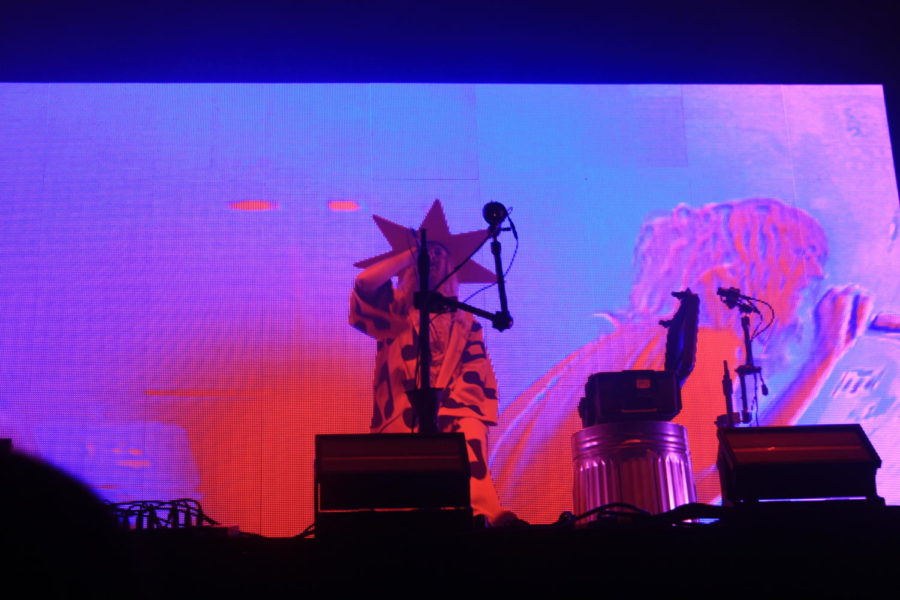

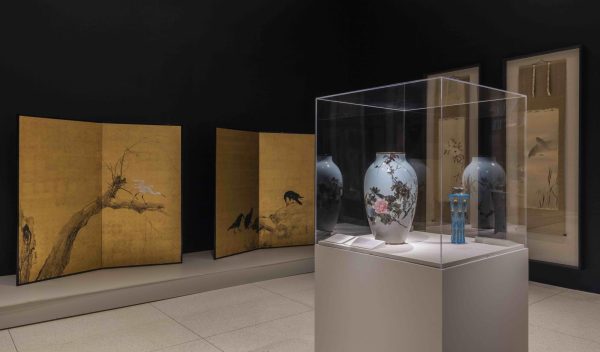
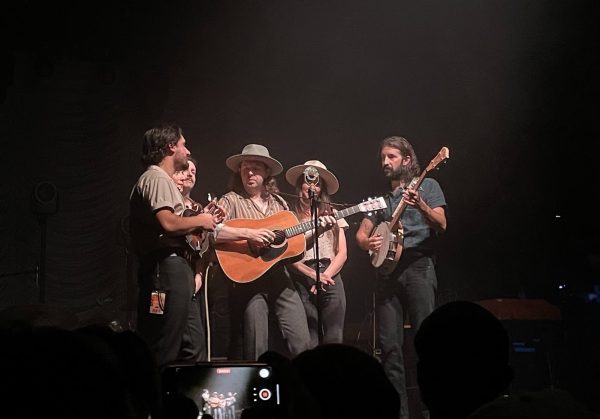
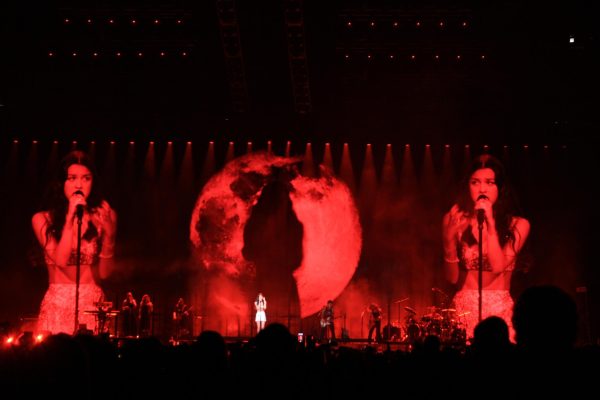
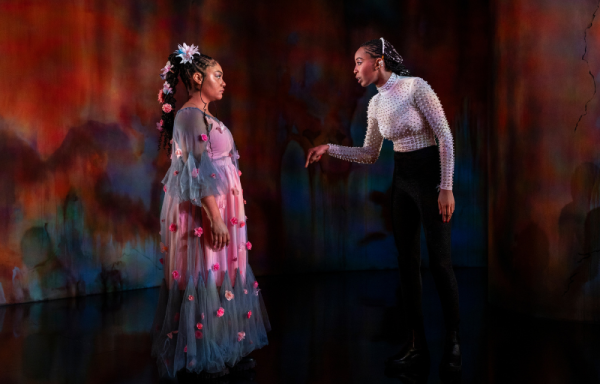
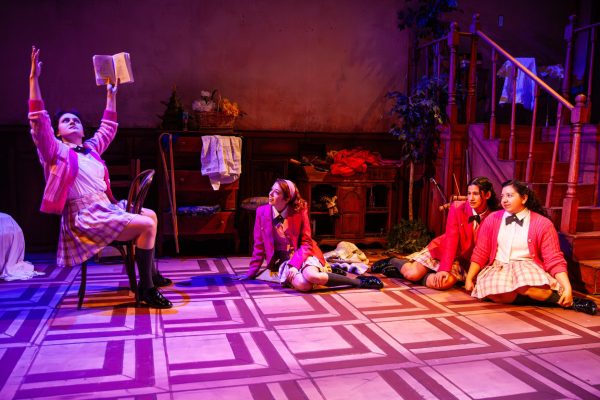
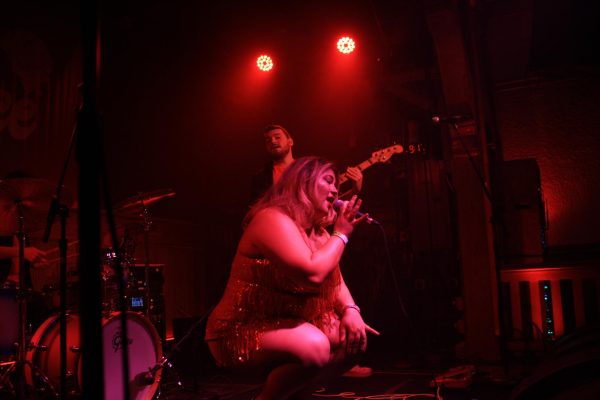
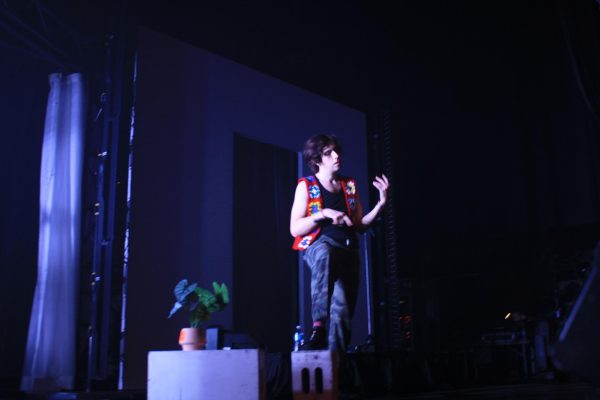

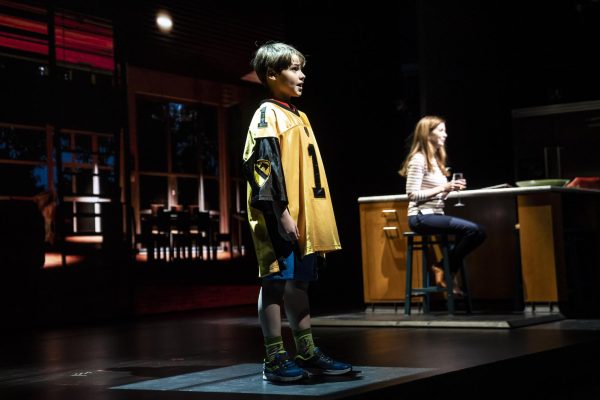
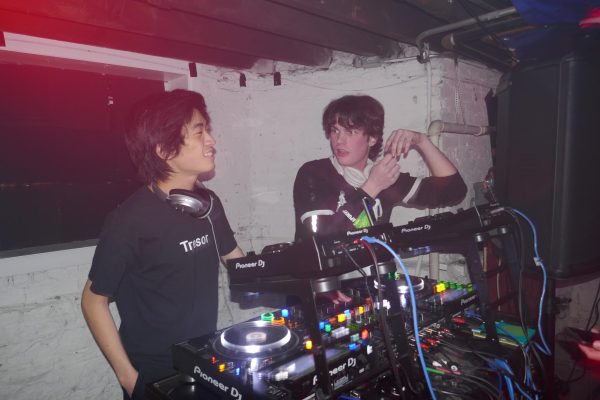
Josie / Jun 8, 2023 at 9:11 am
amazing concert amazing article ❤️